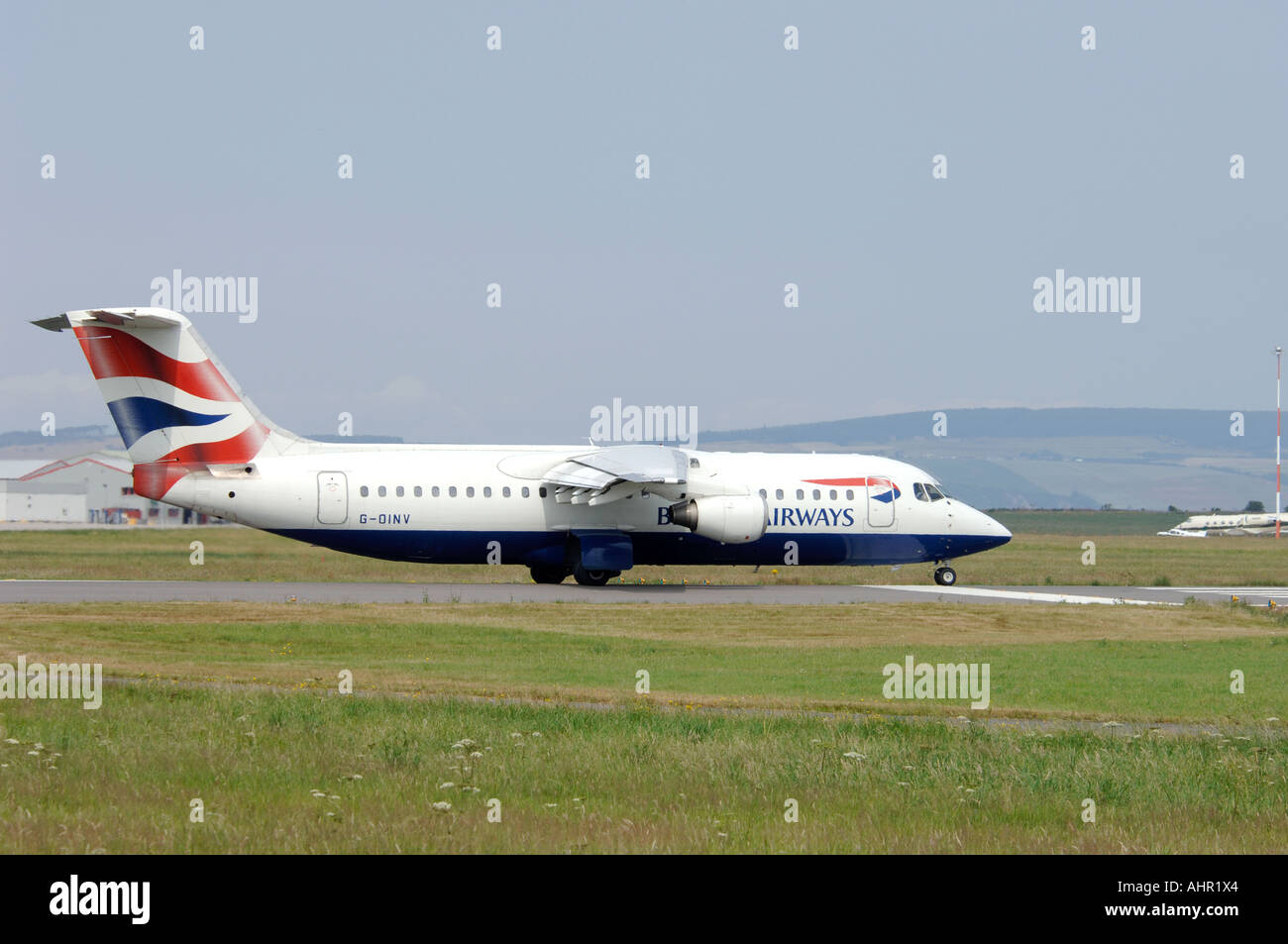BEA 146-300 British Airways Connect Passenger Jet Airliner. XAV 1282-303

Image details
Contributor:
David Gowans / Alamy Stock PhotoImage ID:
AHR1X4File size:
53.1 MB (1.4 MB Compressed download)Releases:
Model - no | Property - noDo I need a release?Dimensions:
5288 x 3512 px | 44.8 x 29.7 cm | 17.6 x 11.7 inches | 300dpiLocation:
Dalcross Airport, Inverness, Highland. Region. Scotland. United Kingdom.More information:
The BAe-146 family, which includes the Avro RJ is likely to remain Britain's most succesful jet transport program, with 395 built. In August 1973 the then Hawker Siddeley Aviation announced it was designing a short range quiet airliner powered by four small turbofans with British government financial aid. Under the designation HS-146, large scale development lasted just a few months before a worsening economic recession made the risk of the project seem unjustifiable. Development then continued on a limited scale, but it was not until July 1978 that the project was officially relaunched, by which time Hawker Siddeley had been absorbed into the newly created British Aerospace. The resulting BAe-146-100 made its first flight on September 3 1981. Certification was granted in early 1983 with first deliveries following shortly afterwards in May 1983. A VIP version was offered as the "Statesman" which was ordered by the Royal Air Force as the BAe-146 CC2, the standard transport version being the BAe-146 C1. An air refuel receptacle equipped military version, the -100STA flew in prototype form only. The BAe-146-200 is a stretch of the 146-100, and is essentially similar to its smaller stablemate, but has a 2.39m (7ft 8in) longer fuselage, features 35% greater underfloor cargo volume, has slightly different performance figures and heavier weights. The stretch consists of five extra fuselage frame pitches. The first BAe-146-200 made the type's maiden flight on August 1 1982, while the UK Civil Aviation Authority awarded the 146-200s type certificate on February 4 the following year. Versions of the 146-200 include the -200QT Quiet Trader freighter, which has been fairly succesful because of its low external noise footprint, and the -200QC (Quick Change) passenger or freight convertible. The 146-300 is a further stretched derivative of the original short fuselage BAe-146-100, but unlike the midsize 200 series, was not developed until later in the 1980s. The first 146-300